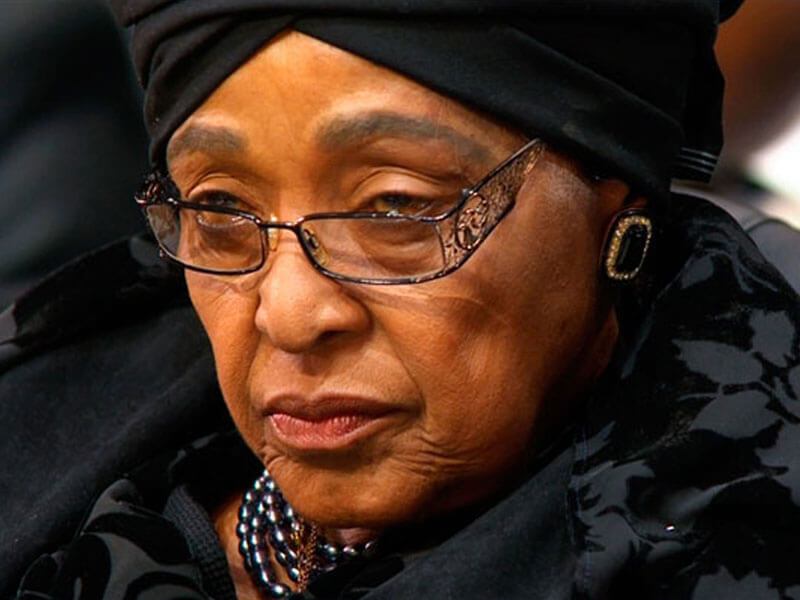Black women of exception: Winnie Madikizela-Mandela
BY ANDREA BAGHO
Winnie Madikizela-Mandela, the former wife of former South Africa’s president Nelson Mandela, was one of the most visible political activists in South Africa during the repressive racist regime of apartheid. Despite several serious charges that dragged her before the post-apartheid Truth and Reconciliation Commission and caused her popularity to take a plunge, she commanded a strong following among South Africa’s downtrodden.
Nonzano Winifred Zanyiwe Madikizela was born in Transkei, on 26 September 1936 to Columbus Madikizela, a headmaster and cabinet minister in the Transkei homeland government, and Gertrude Madikizela, a schoolteacher. A 1956 graduate of the Jan Hofmeyer School of Social Work, she became Baragwanah Hospital’s first African medical social worker.
Initially, she seemed indifferent to politics, but that changed later, especially after 1957, the year she met then-Secretary-General of the African National Congress (ANC), Nelson Mandela, whom she married the following year. A member of the ANC’s Women’s League and the Federation of South African Women, Winnie, while pregnant in 1958 with her first child, took part in an anti-pass law demonstration [Black South Africans were required to have a pass in order to access some parts of town]. The young activist, then barely 22 years of age, was arrested and lost her job. But that was just the beginning of trouble for her and her husband. The latter, who was forced underground after the ANC was banned in 1961, was arrested in 1962, was tried and sentenced to life imprisonment.
_______________________________________
“It is not light that we need, but fire; it is not the gentle shower, but thunder. We need the storm, the whirlwind, and the earthquake.“
FREDERICK DOUGLASS
_______________________________________
Winnie then became an activist in her own right and gained popularity, both domestically and internationally. After her husband’s imprisonment, Winnie was officially confined to the Orlando district of Soweto. But she defied the racist apartheid regime by ignoring her confinement order, which led to her arrest in 1967 and her placement under house arrest. Yet, she stepped up the fight, proving particularly active during the 1976 Soweto student uprising during which hundreds of school children were gunned down by security forces. She lent much-needed support by arranging funerals, comforting aggrieved parents, and helped found the nationwide Black Parents Association.
As a result, she was arrested again, jailed and banished to a small settlement near Brandfort, in the Orange Free State, until 1985. Nothing, really, could stop the “Mother of the Nation” (as she was also called) from protesting the apartheid regime’s brutal, racist policies, although she was repeatedly arrested. Her international stature grew when foreign televisions broadcast the footage of her pursuit by the police in a car chase on Christmas Day 1985, after visiting her husband in jail. To the outside world, she was the embodiment of the persecution endured by South African Blacks under apartheid.
Winnie Mandela’s popularity took a plunge when she was found guilty of kidnapping and accessory to assault of a 14-year old black activist suspected of collaborating with the apartheid regime and killed by one of her bodyguards. The initial six-year sentence was reduced to two after an appeal, and suspended. The historical release of Nelson Mandela from jail in 1990 helped Winnie recover her one-time glory, but the larger-than-life activist continued to grab headlines as more controversies swirled around her. Her style of inflammatory rhetoric proved quite embarrassing for the moderate members of the ANC, but she remained very popular on the left of the party. In 1991, she was elected to the ANC’s national executive. The following year, she and her husband separated.
In the wake of South Africa’s democratic elections held in 1994, she was elected to parliament, only to be unseated the following year. Her estranged husband, who won the presidential election, appointed her deputy minister for arts, culture, science and technology. She was dismissed a year later due to a corruption scandal. She and her husband divorced in 1996. She passed away on 2 April 2018 at age 81, and received a royal burial.



